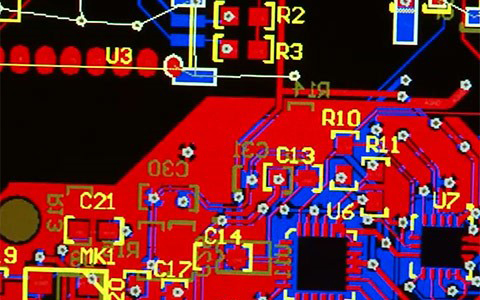Movement sensor device improves life quality for Parkinson’s patients
Background
Project: REMPARK
A small sensor, headphones and a mobile phone – the elements of a prototype kit that is giving hope of relief for sufferers of Parkinson’s disease. The European-backed research project being spearheaded in Barcelona does not offer a cure for the degenerative condition, but it could improve the quality of life of patients and give them more autonomy.

Pere Bosch, who lives in the Catalan city, was diagnosed with Parkinson’s 16 years ago.
“I used to play the accordion,” he says. “When I tried to press the buttons with the left hand, instead of being able to use my fingers and keep the rhythm, I just grasped the accordion. I just couldn’t…”
More autonomy
He is taking part in the project aimed at helping patients manage the different stages of their disease more autonomously.
He wears a sensor on his waist that records movement data and identifies symptoms. When the patient lacks coordination, acoustic stimuli in the ear help him walk in a straight line. The data is also sent via mobile phone to doctors, who can follow the evolution of the disease and adapt treatment accordingly.
“The device tells us how many hours the patient’s state is ‘on’ and ‘off’, how the patient walks during these two different stages of the disease,” says Àngels Bayés, a neurologist at the Teknon Medical Centre, leading the research. “We’re also able to know if the patient suffers from blockages or not, and if so how many blockages he suffers throughout the day. We can also know how fast he can walk.
“When the system automatically detects that the patient has motor problems, it activates acoustic stimuli to help the patient walk better.”
The sensor was designed and developed at an electronics laboratory at the Polytechnic University of Catalonia in Barcelona. Researchers say the biggest challenge was to embed electronics and complex algorithms into a portable, functional and unobtrusive device.
“Inside the sensor we have an accelerometer, that keeps track of acceleration as the person walks,” says Carlos Pérez López, an electronics engineer involved in the project.
“We also have a magnetometer, which works like a compass, recording data in the magnetic fields. And it also has a gyroscope, that records how the patient moves along in three axes in a given space. This data is recorded and analysed through mathematical algorithms. And in the end, we’re able to classify any movement the patient makes”.
Encouraging trials
Researchers say first trials have confirmed that the device can indeed help patients increase their autonomy, although Paola Quispe, a Teknon Medical Centre nurse, says patients she has worked with have suggested some minor improvements: “Most of the patients have said they would prefer smaller sensors. There’s also a gap of around one minute between the moment the sensors identify a problem and the sending of the acoustic stimulation. Patients also said they would prefer to have musical rhythms, instead of just the beat of a metronome.”
Now researchers are working on giving the device the capacity to regulate the medication the patients receive, in real-time and in response to their body’s needs, as Joan Cabestany, a telecommunications engineer and coordinator of the REMPARK project, as it is called, explains: “The next step is to transform this device into a fully operational medical aid. A device that will help doctors provide better diagnostics, and also, eventually, allow them to adapt the patients’ medication, which will improve their health. But medical devices are heavily regulated in Europe, so we need to work further in this direction.”
This innovation was made possible by Israel’s continued participation in the official Horizon 2020 fund, managed in Israel by ISERD part of The Israel Innovation Authority (Formerly the Office of the Chief Scientist and MATIMOP). The initiative has taken Israeli R&D to the next level with the help of ground-breaking collaboration between scientists in Israel and Europe, as well as essential funding and support.
Project details
Project acronym: REMPARK
Participants: Spain (Coordinator), Germany, Italy, Belgium, Ireland, Israel, Portugal, Sweden
Project Reference N° 287677
Total cost: €4 735 804
EU contribution: €3 282 912
Duration: November 2011 – April 2015
